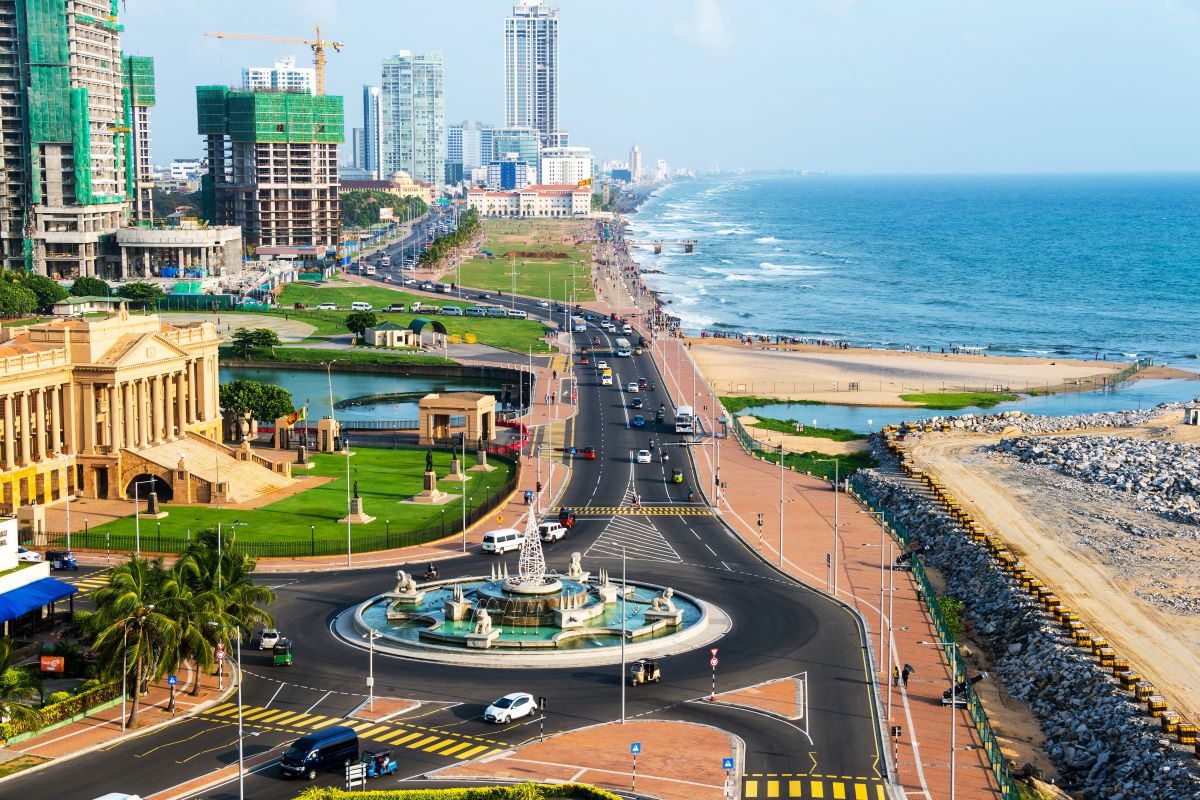Sri Lanka’s debt restructuring deal worth $5.9 bn has secured an agreement in principle from a group of its creditors, as per an announcement made by the country’s government yesterday. Japan, alongside France and India, serves as a co-chair for Sri Lanka’s official creditor committee of 15 nations.
The finance ministry has announced that the recent agreement comprises a combination of extending the repayment period and lowering interest rates on bilateral loans provided to the island nation.
“This agreement serves as a key milestone in Sri Lanka’s ongoing endeavours to achieve public debt sustainability and to foster economic recovery,” said Sri Lanka’s Finance Ministry Secretary Mahinda Siriwardana.
This latest development comes following an agreement between the country and the Export-Import Bank of China to tackle around $4.2 bn of its outstanding debt last month.
“Sri Lanka now intends to focus its efforts on reaching comparable debt restructuring agreements with external commercial creditors, and in particular with its holders of international sovereign bonds,” adds Siriwardana.
Sri Lanka’s debt deal precedes IMF bailout review
Earlier this year, Sri Lanka secured a four-year $2.9 bn bailout package from the IMF, contingent on Colombo ensuring debt sustainability aligned with agreed targets. However, progress in securing a deal with foreign creditors has been sluggish.
The second $330 mn loan instalment has been pending since September, causing delays in disbursement. Nonetheless, the recent agreement with creditor countries regarding Sri Lanka’s debt restructuring plan is expected to open the door for financial assistance from the IMF.
“These understandings pave the way for the IMF executive board to consider completion of the first review…We look forward to the executive board taking up this review by mid-December and the continuation of our productive collaboration with Sri Lanka,” said Peter Breuer, the IMF’s mission chief for Sri Lanka.
In retrospect, Sri Lanka experienced a significant financial crisis in 2022. This resulted from a shortage of foreign exchange to sustain essential imports. As a result, the island nation faced shortages of essential commodities such as food and fuel. Widespread public demonstrations ensued, resulting in the removal of the Gotabaya Rajapaksa as the president of the country.
Since then, Colombo has implemented various measures to enhance its economic standing, including substantial tax hikes and the reduction of consumer subsidies. Subsequently, the country has successfully curbed inflation, with rates dropping from a peak of 70% in September 2022 to 1.3% in September 2023.
Sri Lanka’s economic goals too ambitious?
Before finalising the agreement on Sri Lanka’s debt restructuring deal with creditors, the country’s government outlined ambitious revenue and deficit targets for the 2024 budget earlier this month.
For next year, the government has set a fiscal deficit target of 2.85 tn Sri Lankan rupees or LKR ($8.63 bn), equivalent to 9.1% of GDP. This represents an increase from the revised 8.5% of GDP for the current year, which was initially set at 7.9%. However, Fitch Ratings expresses scepticism, stating that meeting these targets will be challenging, projecting a narrower deficit of 7.6% of GDP in 2024 despite an expected economic recovery.
Additionally, the government aims for a total tax revenue of 4.1 tn LKR ($12.43 bn) in 2024, a substantial rise from the current year’s 2.85 tn LKR ($8.63 bn). The primary contributor to this surge is expected to be goods and services tax receipts.
“Fitch believes there are significant risks to the government’s revenue goal for 2024… boost to revenue from inflation is set to weaken in 2024. We project consumer prices will rise by 8.7% on average in 2024, compared with 22.1% in 2023,” adds the rating agency.
All in all, the World Bank expects Sri Lanka’s economy to expand by 1.7% in 2024 after witnessing a fall of 3.8% in 2023.
“Sri Lanka has carried out critical reforms since the start of the economic crisis. Staying the course on reforms while managing fiscal risks is crucial to restore a sustainable growth path,” says Faris Hadad-Zervos, World Bank Country Director for Maldives, Nepal, and Sri Lanka.
“Current efforts to mobilise tax revenue should be coupled with continued reforms towards transparency of expenditures to build public confidence and to deliver better public services,” he opines.


 Australia
Australia China
China India
India Indonesia
Indonesia Japan
Japan Malaysia
Malaysia Philippines
Philippines Singapore
Singapore South Korea
South Korea Taiwan
Taiwan Thailand
Thailand Vietnam
Vietnam







